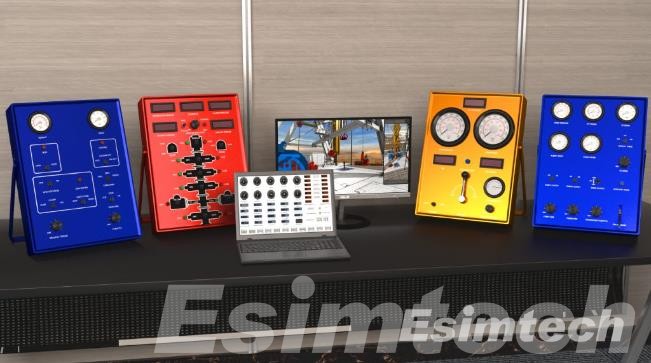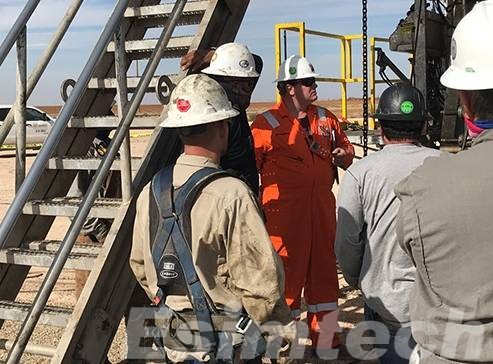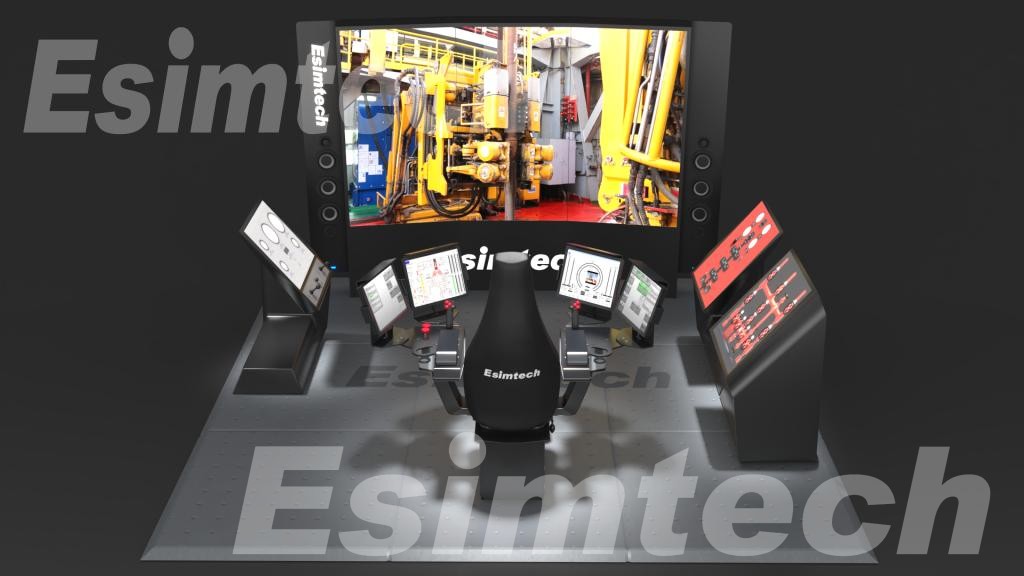Bringing Well Control Training to Life through Simulations and Exercises
Well control is a critical aspect of oil and gas drilling operations. It involves the ability to control and stop the flow of hydrocarbons from a well in the event of an uncontrolled release. Effective well control training is essential to ensure the safety of personnel, the protection of the environment, and the prevention of costly accidents.
Traditional well control training methods have often relied on classroom instruction and hands-on training in well control simulators. However, these methods can be limited in their ability to provide realistic and engaging training experiences.

What is Simulations and Exercises for Well Control Training
Simulations offer a safe and controlled environment for personnel to practice well control procedures and techniques. These simulations can replicate various well control scenarios, ranging from minor kicks to severe blowouts. Trainees can interact with realistic well control equipment and simulators, allowing them to develop the necessary reflexes and decision-making skills in a simulated environment.
Well control exercises involve real-world scenarios and equipment, providing a more immersive training experience. These exercises can be conducted on inactive wells or in dedicated training facilities. They allow trainees to apply their knowledge and skills in a practical setting, enhancing their preparedness for actual well control incidents.
Types of Simulations and Exercises for Well Control Training
Types of Simulations
There are several types of well control simulations that can be used to train individuals on well control procedures. These simulations can be categorized into three main types:
- Desktop Simulators
Desktop simulators offer a cost-effective and accessible option for well control training. They provide a virtual learning environment where trainees can interact with various well control scenarios on a computer screen.
- Full-Scale Simulators:
Full-scale simulators replicate the physical environment of a drilling rig and well control equipment. Trainees can manipulate controls and observe real-time feedback, providing a highly immersive and realistic training experience.
- Virtual Reality (VR) Simulators:
VR simulators take well control training to the next level by immersing trainees in a fully virtual 3D environment. This provides an even more realistic and engaging learning experience.
- Tabletop Exercises:
Tabletop exercises involve role-playing and discussion of well control scenarios. They are a valuable tool for training crew coordination, communication, and decision-making in well control situations.

Types of Exercises
In addition to simulations, well control exercises provide an opportunity to apply well control principles and procedures in a hands-on setting. These exercises are often conducted in training facilities or mock wellbore setups and allow participants to replicate real-world scenarios and reinforce their understanding of well control practices.
Types of well control exercises include:
- Kick control exercises: These exercises focus on the practical application of kick detection, control, and kill procedures. Participants utilize well control equipment, manipulate valves and controls, and execute the steps involved in safely controlling a kick.
- Blowout control exercises: These exercises simulate the emergency response to a blowout event. Participants coordinate actions, deploy equipment, and implement blowout control strategies, gaining familiarity with the complexities of managing an uncontrolled release of fluids.
- Lost circulation exercises: These exercises emphasize the identification and prevention of lost circulation. Participants practice techniques such as pumping lost circulation materials, utilizing cement plugs, and employing specialized drilling fluids to regain circulation and maintain well control.

In addition to these traditional types of simulations and exercises, there are also a number of newer technologies that are being used to train well control personnel. These include:
Virtual reality (VR) simulators: VR simulators provide a more immersive and realistic training experience than traditional simulators. Participants can use VR headsets to see and interact with simulated well control scenarios in a way that is not possible with traditional simulators.
Augmented reality (AR) simulators: AR simulators overlay simulated well control information onto the real world. This can help participants to better understand how well control procedures apply to specific wellbore situations.

Benefits of Simulations and Exercises for Well Control Training
Well control is a critical aspect of oil and gas operations. It is the process of controlling the flow of fluids from a wellbore to prevent uncontrolled releases, which can have serious safety and environmental consequences. Properly trained personnel are essential for effective well control.
Simulations and exercises are valuable tools for well control training. They provide a safe and controlled environment for trainees to practice well control procedures and develop the skills and knowledge they need to respond effectively to well control events.
There are many benefits to using simulations and exercises for well control training. Some of the most notable benefits include:
- Increased immersion and engagement: Simulations and exercises can create a more immersive and engaging learning experience for trainees. This can help them to better understand the principles of well control and retain the information they learn.
- Safe and controlled practice: Simulations and exercises provide trainees with the opportunity to practice well control procedures in a safe and controlled environment. This is important because well control events can be dangerous and even deadly.
- Development of skills and knowledge: Simulations and exercises can help trainees to develop the skills and knowledge they need to respond effectively to well control events. This includes the ability to identify well control problems, make quick decisions, and take appropriate action.
- Improved teamwork and communication: Simulations and exercises can help to improve teamwork and communication among trainees. This is important because well control events often require a coordinated response from multiple personnel.
Summary
Simulations and exercises play a critical role in preparing oil and gas industry personnel for well control emergencies. By providing hands-on experience and promoting a culture of safety, these training methods help to prevent well control incidents and protect the environment.
